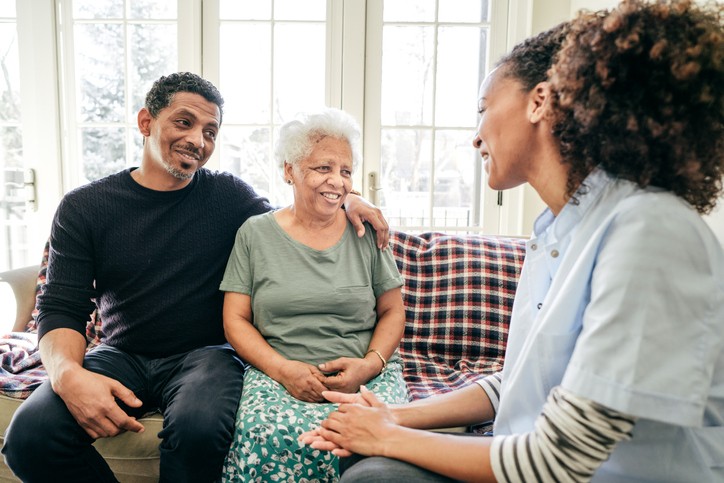Vital Overview to Memory Care Provider in Assisted Living Neighborhoods
Browsing the landscape of memory treatment solutions within assisted living neighborhoods requires a nuanced understanding of the specialized programs and support group available. As people age, memory-related difficulties can posture significant obstacles to daily living, making it critical to have access to tailored care. From team training and certifications to environmental adjustments and therapeutic tasks, the selection of solutions provided can greatly affect the well-being and quality of life for locals. By discovering the ins and outs of these vital components, a deeper understanding right into the all natural method of memory treatment services in assisted living neighborhoods arises, dropping light on the detailed support available to those in need.
Specialized Memory Treatment Programs
Specialized memory care programs within assisted living communities play an essential role in supplying tailored assistance for individuals with cognitive disability. These programs are specifically developed to fulfill the unique needs of homeowners encountering memory-related obstacles such as Alzheimer's and mental deterioration. By concentrating on personalized treatment strategies, specialized personnel training, and creating a revitalizing and secure atmosphere, these programs intend to improve the high quality of life for homeowners while promoting freedom to the max level feasible.
The core parts of specialized memory care programs usually include organized daily regimens, memory-enhancing activities, and sensory stimulation to engage locals cognitively and psychologically. In addition, these programs commonly use specialized dining choices, medicine monitoring assistance, and assistance with activities of everyday living to make sure extensive care for locals with varying degrees of cognitive decline.
Personnel Training and Qualifications
Efficient team training and credentials are essential components of making sure top quality take care of locals in memory treatment programs within assisted living areas. Personnel functioning in memory treatment devices should undertake specific training to recognize the special demands of locals with mental deterioration and Alzheimer's disease. Training ought to cover topics such as communication methods, actions monitoring methods, and person-centered treatment techniques. Team should likewise obtain education and learning on dementia-related habits, medication monitoring, and emergency situation procedures to deal with various scenarios successfully.

Setting Adjustments for Memory Treatment
To ensure a comprehensive method to care that addresses both personnel expertise and physical environments, the atmosphere in memory treatment units need to be thoughtfully adapted to fulfill the unique demands of citizens with mental deterioration and Alzheimer's condition. The Sanctuary charlotte senior care. Developing a dementia-friendly atmosphere includes making specific adjustments that can help homeowners really feel secure, comfy, and involved
One important facet of atmosphere adaptations is making certain safety and security and safety. This includes implementing actions such as safeguarded exits and access to avoid homeowners from straying, installing handrails and get bars for assistance, and lessening trip dangers throughout the living area. In addition, utilizing color-coded hints, clear signs, and acquainted items can help locals browse their environments a lot more quickly.
Additionally, producing a soothing and homey environment is necessary for advertising health. This can be achieved with using natural illumination, calming shades, comfy furnishings, and acquainted designs. Designing areas that are easy to navigate and advertising self-reliance with features like memory boxes and visual tips can also boost the lifestyle for homeowners with memory problems. By applying these atmosphere adaptations, helped living neighborhoods can offer a helpful and nurturing setting for individuals with mental deterioration and Alzheimer's condition.
Healing Tasks and Engagement
Involvement in purposeful healing tasks plays an essential function in boosting the wellness and cognitive feature of individuals residing in memory care systems. These activities are meticulously developed to stimulate memory, cognition, and social communication among locals.
Participation in restorative tasks not only helps people maintain cognitive capacities however additionally supplies psychological and social benefits. Participating in these tasks can minimize sensations of isolation, anxiety, and anxiety commonly experienced by individuals visit with memory impairments. These activities supply an organized regular and a sense of purpose for residents, contributing to a total better top quality of life.
Memory treatment areas often have actually dedicated staff educated in helping with healing activities, making sure that locals receive individualized and meaningful involvement that supports their cognitive and psychological wellness.
Interaction Strategies and Assistance
In facilitating meaningful interactions and promoting alternative health for individuals in memory treatment units, efficient communication techniques and assistance play a crucial duty. Interaction in memory treatment includes recognizing citizens' unique demands, choices, and capabilities.
Sustaining interaction in memory care settings extends beyond verbal communications. Aesthetic help, memory signs, and familiar items can assist set off memories and help with links. Developing a calm and structured environment minimizes distractions and confusion, allowing citizens to focus on communication. Furthermore, caregivers learnt communication strategies for mental deterioration care can browse challenges effectively and respond empathetically to homeowners' emotions and actions.
Conclusion
Finally, memory treatment solutions in assisted living areas play an essential duty in supplying specialized care and support for people with cognitive problems. Via specific programs, skilled team, adjusted environments, healing tasks, and effective communication approaches, these solutions goal to improve the high quality of life for residents with memory issues. By addressing the unique requirements of these people, memory treatment solutions contribute to creating a helpful and safe setting that advertises overall health and comfort.
Efficient team training and qualifications are important components of guaranteeing premium treatment for locals in memory treatment programs within assisted living neighborhoods - have a peek at this website The Sanctuary assisted living charlotte nc.Certifications for personnel in memory care programs commonly consist of certifications in mental deterioration care or Alzheimer's treatment, along with pertinent experience in working with people with memory problems. Recurring training and expert growth possibilities are crucial to make sure that staff keep upgraded on the newest best techniques in memory care and continue to provide high-grade support to residents with cognitive obstacles. By investing in team training and credentials, aided living neighborhoods can improve the general well-being and high quality of life for residents in memory care programs
